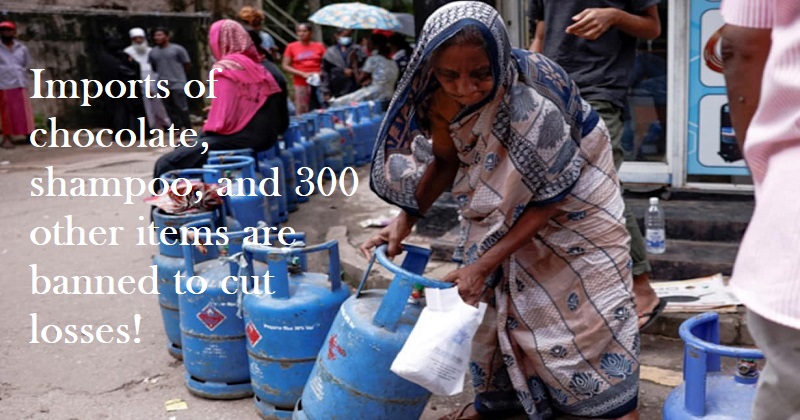
Amid a deteriorating economy aided by an inept political ruling class, Sri Lanka has announced a ban on the import of over 300 ‘non-essential’ items in order to reduce losses and reduce the country’s financial burden. According to reports, acting President Ranil Wickremesinghe signed the rather desperate measure under the country’s Import and Export Control Act.
‘Under imports and exports control regulations dated August 22, an import ban on a wide range of consumer items ranging from food to machinery has taken immediate effect,’ the notification stated. Chocolate, condensed milk, coconuts, perfumes, deodorants, shampoos, trunks, suitcases, and make-up products, among many other items, have been prohibited. Meanwhile, imports of electrical goods, ships, and aircraft have been halted.
Not only have imports been prohibited, but the government has also prohibited the export of building stone, cutlery cases, toilets, marble, tubes, pipes, hoses, and fittings. The authorities have granted some leeway to ease the import and export ban. According to reports, items shipped on or before August 23 and arriving on or before September 14 via seaports or airports will be allowed for customs clearance.
While imports are prohibited, the price of basic commodities in the country is reaching new highs. According to reports, the Ceylon Petroleum Corporation (CPC), a state-owned fuel distributor, raised the price of kerosene on Sunday to 253 Sri Lankan rupees (SLR), or 0.7 US dollar. As WION has extensively reported, the island nation of 22 million people is experiencing its worst economic crisis since its independence in 1948.
The entire country was thrown into disarray after the President, Prime Minister, and other high-ranking officials resigned. Months of food, fuel, and medication shortages caused the island nation to miss payments on its $51 billion foreign debt in April. Since then, the country has requested assistance from the International Monetary Fund (IMF). Negotiations with the IMF are said to be ongoing in order to secure an Extended Fund Facility (EFF).

Post Your Comments